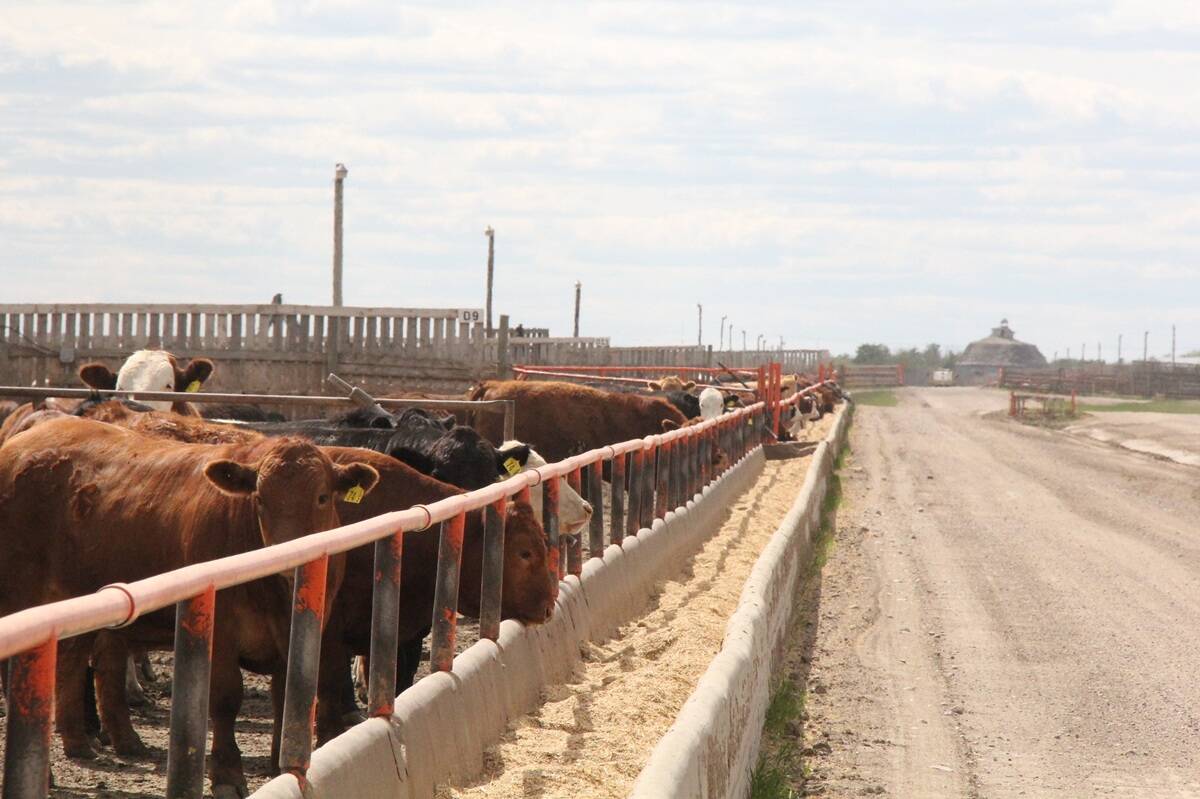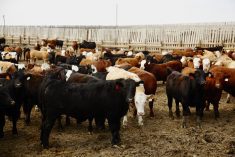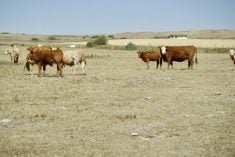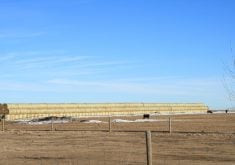Optimism is the key motivation that keeps many of us going through the tough times. It’s human nature to focus our thoughts on the challenges and adversity that face beef producers across the country — whether it is extreme weather, trade irritants affecting our ability to export our product to global markets or hearing about a neighbour down the road exiting the business.
But it’s not all doom and gloom — there are some bright spots. We have seen cattle prices move back to record highs this spring, and in some instances, surpass the previous highs of 2015.
These higher prices are much needed, given the rise in input costs. Feedlots are back in the black on cash sales for the first time in a long time. Higher prices are a welcome change for the cow-calf producers recovering from weather challenges in various regions across Canada. During times of record-high prices, it is important that producers proactively examine the risk management strategies that are available to help protect their equity.
Read Also

Unwinding the fibre in feedlot cattle diets
Research into how barley rolling method and undigestible NDF levels affect animal performance and digestive health in finishing diets
On the international stage, the demand for Canadian beef remains high. In late April, I travelled to Japan on the Canadian Cattle Association’s (CCA) first trade mission since the start of the pandemic. While in Tokyo, Dennis Laycraft and I participated in Minister Bibeau’s trade reception and met with Japanese media and retail customers. We also had the opportunity to meet with Ian McKay, Canada’s ambassador to Japan, who was recently appointed the Special Envoy to the Indo-Pacific. In this role, he will lead the Canadian government’s Indo-Pacific strategy.
The trip was an eye-opening experience. Japan is one of our most trusted trading partners and will continue to be a reliable market for us in the future. It was humbling to hear directly from some of our customers about the confidence and trust they have in Canadian beef. There is more demand in the Japanese market for high-quality, grain-fed beef and they are looking to Canada as a dependable and secure producer. The world needs more Canadian beef!
While demand is high for our product in global markets, there are still non-tariff trade barriers that hinder our ability to get Canadian beef where it’s wanted most. In recent months, the impact of these types of trade irritants has been a key message that we’ve been sharing in Ottawa through our provincial fly-in meetings as well as CCA’s appearances at the House of Commons Standing Committee on International Trade this spring.
We continue to reiterate the important role that trade plays in the sustainability and profitability of our industry with parliamentarians of all stripes. CCA believes in free and open trade principles and Canadian cattle producers have benefited from increased market access through progressive trade agreements such as the Comprehensive and Progressive Agreement for Trans-Pacific Partnership (CPTPP).
Our strong position when it comes to trade, market access and the progressive and positive success of CPTPP is the reason why we are opposing the U.K.’s accession to the CPTPP. It is important the staggering trade imbalance between cattle producers in Canada and the U.K. is addressed and the non-tariff trade barriers are addressed during the Canada-U.K. bilateral negotiations.
Last year, we didn’t register any beef exports to the U.K. while Canada imported C$33 million in beef from the U.K. We are urging Canada to ensure the trade irritants are addressed before ratifying the CPTPP and ensure reciprocal access is achieved for cattle producers in Canada and the U.K.
Another key trade policy file we have been working on is the proposed amendment to the “Product of the USA” label. We have taken a cohesive “Team Canada” approach, working with the Canadian government and our industry stakeholders, to communicate our concerns with the proposed new requirements for the “Product of the USA” label.
In the weeks before the closing of the consultation period, we have had many productive discussions with Minister Bibeau and government of Canada officials to ensure that our submissions were complementary. We are very concerned that the proposed rule states that any beef product labelled as “Product of the USA” must be derived from cattle that are born, raised, slaughtered and processed in the U.S. If this proposed rule is adopted, the exports of Canadian beef and live cattle into the U.S. would be significantly affected. In addition, these changes could hinder the integrated nature of our North American supply chain.
As I wrap up my column for another month, I can’t help but think about the cattle farmers and ranchers in British Columbia, Alberta, Saskatchewan and Quebec who are working overtime to overcome the challenges of extreme weather conditions — whether it’s battling wildfires or flooding. Our thoughts are with you, and we hope the situation has improved by the time you are reading this update. We are on standby and are prepared to work closely with our provincial member associations to support impacted producers.
















